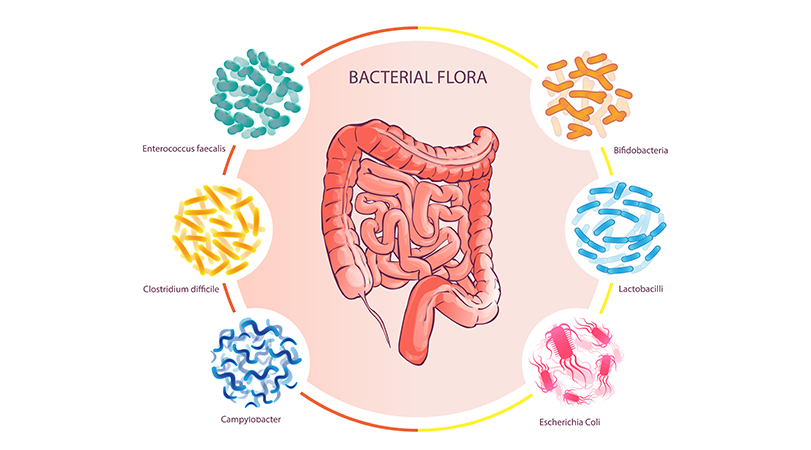We know that some food is better for us than others: foods that are highly processed, full of sugar and sodium, packed with trans and saturated fats, and excess carbohydrates have long been known as the culprits of weight gain. But what exactly is going on inside your gut when you consume those foods? And does the health of your gut flora affect your weight?
Studies say yes! We already know that your gut’s microbiome can have a remarkable impact on your overall health and long-term wellbeing. There is plenty of research to indicate that your gut health affects your body’s ability not only to ward off disease and illness but can also impact your length and quality of life.
But now, let’s look at how the inner workings of your gut can affect the outward protrusion of the belly.
Unanticipated Side-Effects
Obesity plays a part in diabetes, liver disease, and cardiovascular disease. But the relationship between your gut microbiota and your weight might not necessarily be connected in the way you would expect.
- Sleep Habits. Simply put, altered sleep cycles affect metabolism, which can throw off the microbiome’s interactions and contribute to obesity.
- Yo-Yo Weight Loss. If you’ve recently lost a significant amount of weight, your gut microbiome retains the “memory” of its composition before the weight loss, which can then contribute to accelerated weight gain.
- Inflammation. Especially for diabetic folks, chronic hyperglycemia (high blood sugar) and subsequent irritation and inflammation of the gut microbiome were found to fundamentally affect cellular makeup and metabolism.
The Science Inside
On top of these unexpected factors, there is a more obvious correlation between your gut microbiota, appetite regulation, hunger, and weight gain. Weight gain and obesity occur when there is a discrepancy between food intake and energy expenditure. If you’re not expending the energy you get from the food you eat, it is stored as fat.
Dysbiotic (unbalanced) gut flora can lead to weight gain. It is a complicated trickle-down reaction, starting from altering your gut microbiome and resulting in weight gain through various molecular interactions.
Hormones, like leptin and insulin, are significant factors in regulating hunger and appetite, food intake, management, and body weight. Leptin is just one of the proteins that affect the size of the adipose tissue, where energy is stored as fat. A lack of leptin can have a surprising impact, from GI health issues to excess weight gain. Recent studies found a strong relationship between the butyrate-producing genus Butyricicoccus with blood glucose and appetite regulation. Another finding from the study was a strong correlation with Bifidobacterium in healthy Body-Mass Index.
Biom and BMI
The inner workings of your gut can be a complicated business. At the end of the day, here’s what you need to know: what you put into your body will cultivate health from the inside out. That’s why it’s important to make beneficial choices, like eating right and supplementing with the nutrients your body needs to support proper gut health.
LeanBiom® Prebiotic fiber helps to do just that. By supporting the growth of good gut flora, Shape Probiotic Capsules helps you manage your weight while ensuring you feel full and nourished. Shape is a research-backed, patented product for personalized nutrition by increasing lean promoting beneficial microbes such as Butyricicoccus and Bifidobacterium. Its precise probiotic formula is proven for weight loss and healthy weight maintenance.
We believe that wellness starts from within. A healthy inside equals a healthy outside! Cultivate a healthy gut environment, stabilize the growth of good flora, and reduce food cravings with Biom.
Shop our products now, or reach out to learn more.




